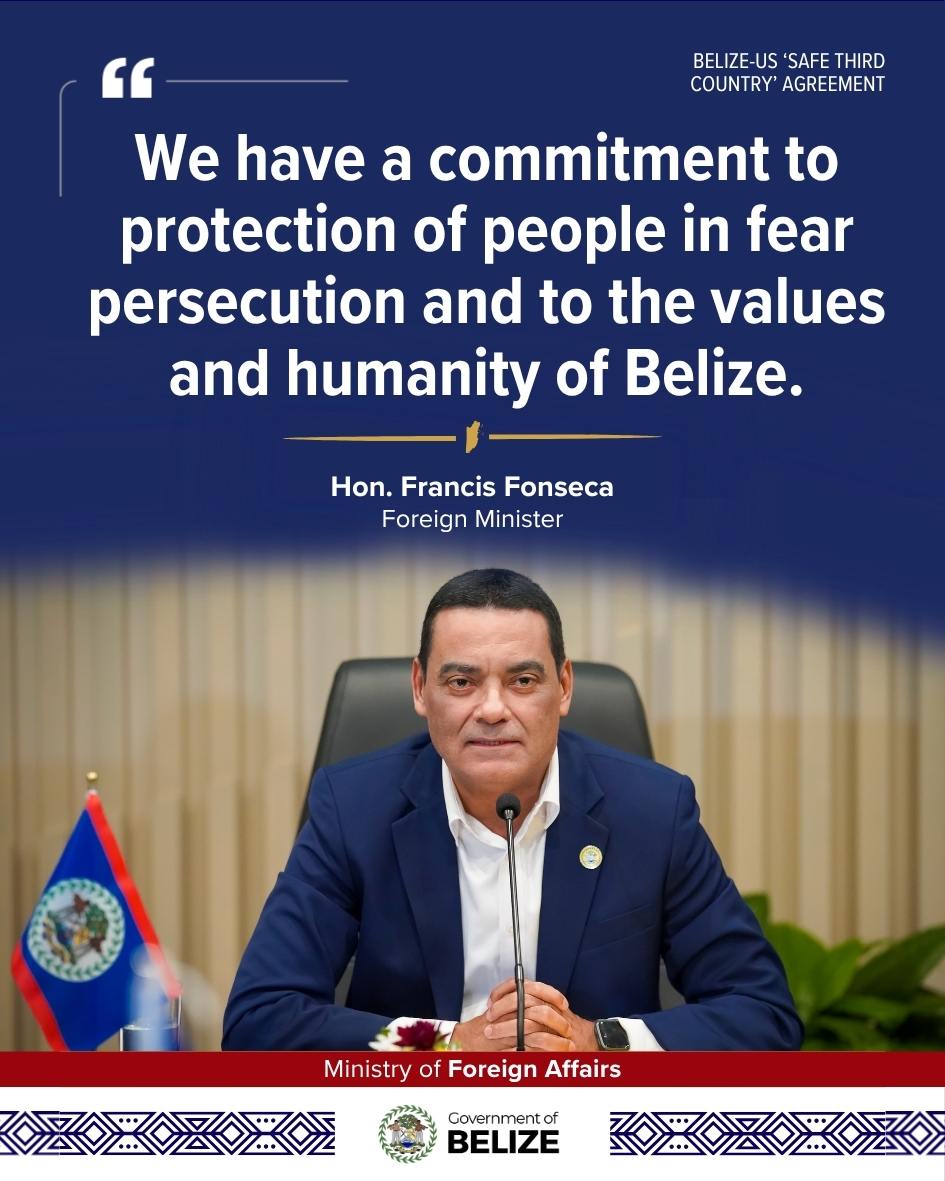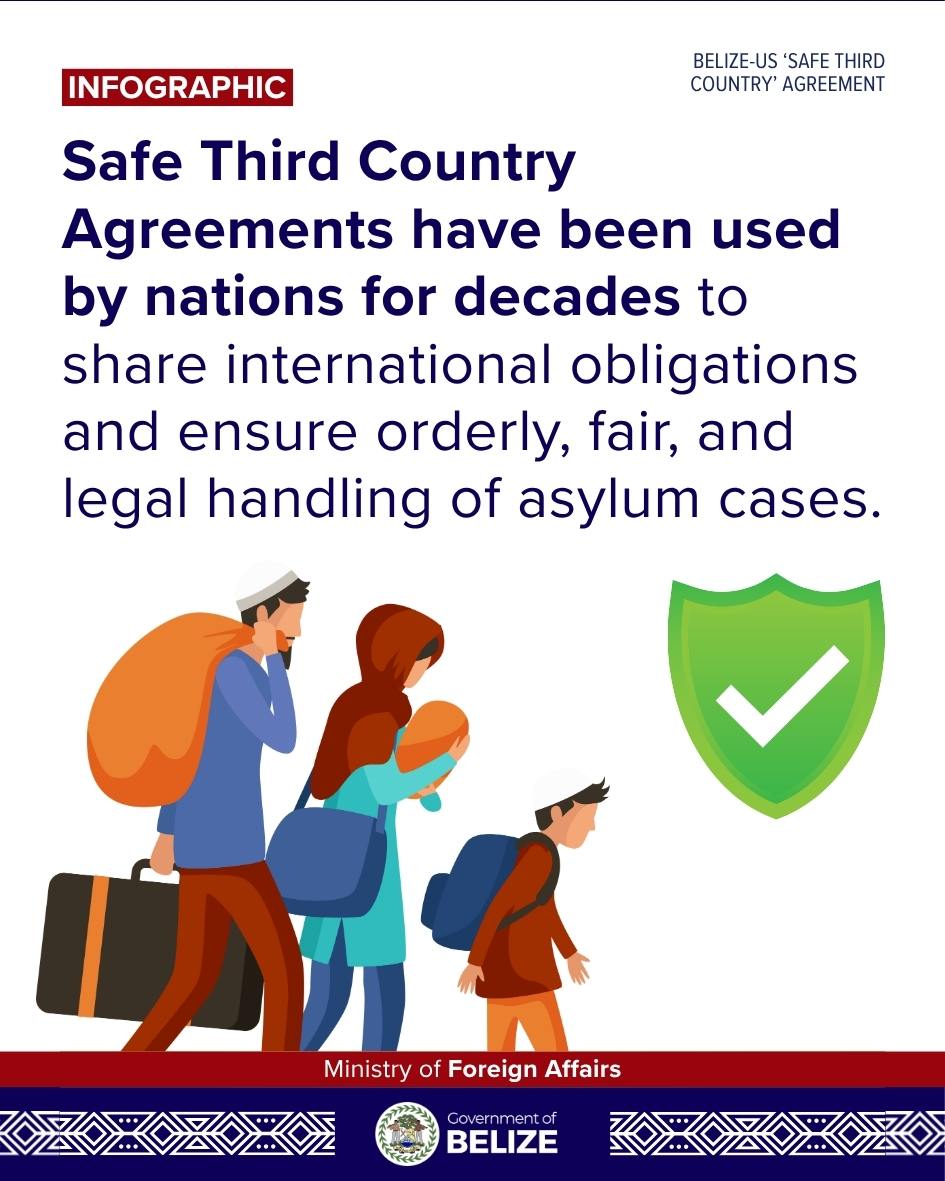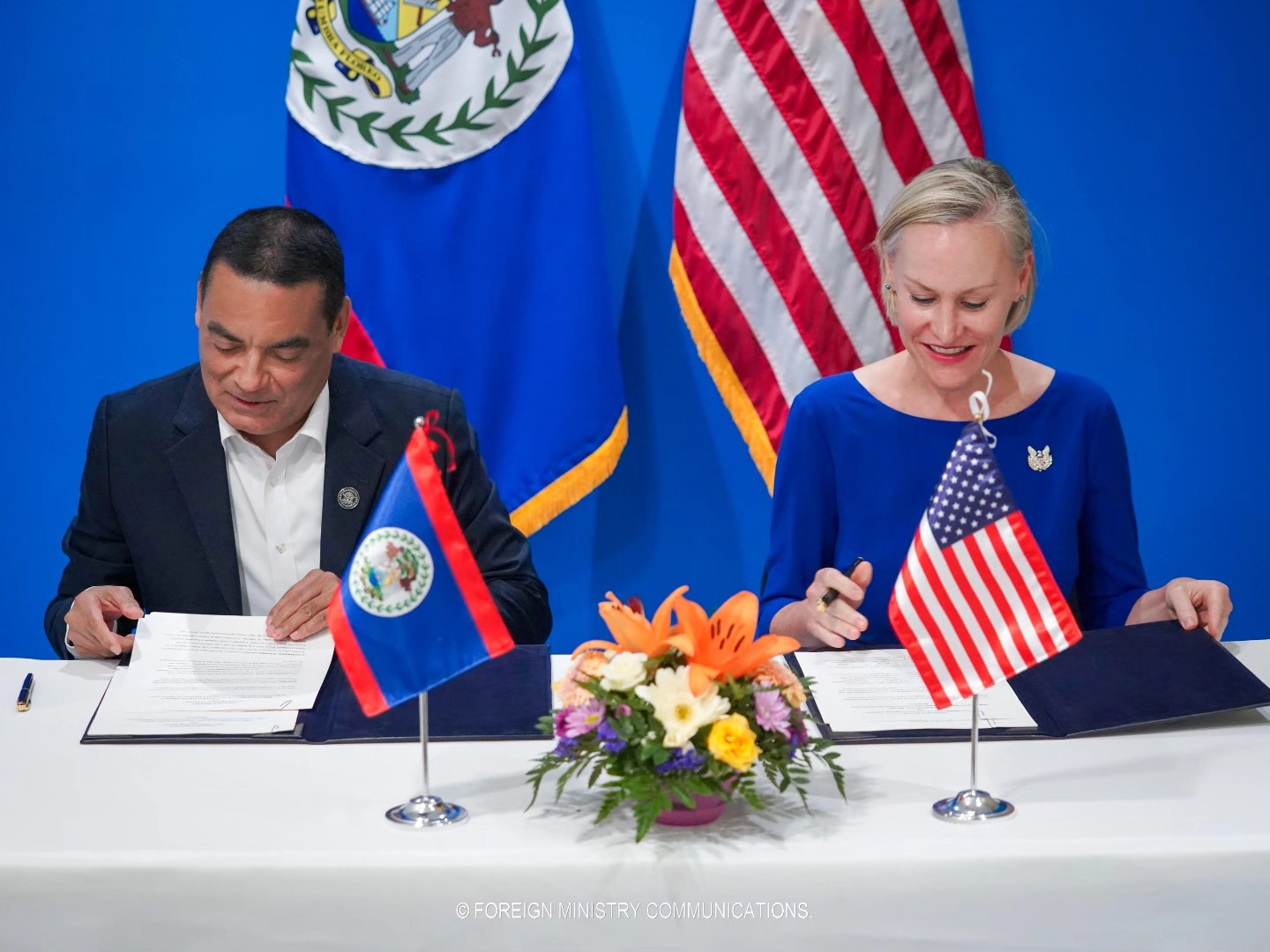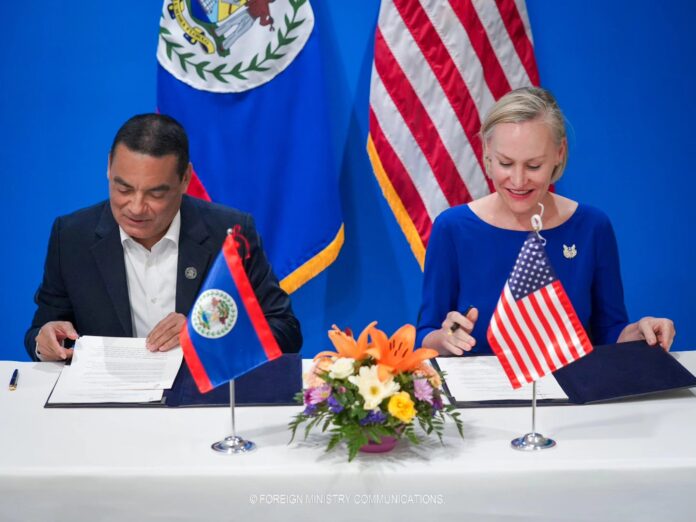After months of speculation, the Government of Belize revealed on Friday, October 17th, that it is on the verge of finalizing a migration agreement with the United States of America (USA). Under this deal, dubbed a Safe Third Country Agreement, Belize would allow asylum seekers in the USA to be transferred to the country while their cases are being processed. The government emphasized that this would occur only under strict conditions.
The announcement was made during the sitting of the House of Representatives in Belmopan. Minister of Foreign Affairs, Honourable Francis Fonseca, said the agreement would protect both Belize’s sovereignty and its humanitarian commitments. He added that negotiations are nearing completion and dismissed misinformation surrounding the proposal.
“There is much speculation and misinformation about what a safe third country agreement is,” Fonseca said. “The agreement we are finalizing contains multiple safeguards to protect the interests and security of Belize.”
Fonseca outlined that the agreement would include an unqualified veto over who is transferred to Belize, restrictions on the nationalities eligible for transfer, a cap on the number of transferees per year, and considerations of criminal records and professional skills.
According to Fonseca, the proposed agreement would initially run for two years. “Either party will be able to suspend or terminate it at any time with written notice. The government insisted on these safeguards, citing Belize’s limited capacity and national security considerations,” he stated. The agreement also provides for financial and technical assistance from the United States to help Belize strengthen its asylum system.
Fonseca explained that Safe Third Country Agreements are not new and are rooted in the preamble of the 1951 UN Refugee Convention. “These agreements have been used by countries for decades,” he said. “A safe third country agreement can be a perfectly legal tool to share responsibilities relating to refugee obligations.” He added that such mechanisms allow countries to manage migration in an orderly manner while protecting the rights of asylum seekers.
Belize, a party to the 1951 UN Refugee Convention, has long upheld its international obligations to people fleeing persecution and conflict. Fonseca noted that the country has a strong track record in managing asylum systems. “Since our independence, we have conducted several amnesty programs, including most recently in 2022,” he said. “Belize is recognized internationally as a leader on migration and refugee issues.”

The agreement will not take effect immediately, as it must first go through domestic legal procedures. “It must be ratified by the Senate under Section 61A(2) of the Constitution of Belize. The Senate and this Honourable House will play our part moving forward,” Fonseca stated. He added that the agreement will only be activated once an implementation plan and operating procedures are fully developed. “Then and only then, if necessary, will the agreement even be used,” Fonseca assured.
The government reiterated that the USA remains Belize’s largest trading partner, main tourism market, and home to the largest Belizean diaspora. As such, Belize remains strongly committed to upholding the values and humanity that define the nation.


